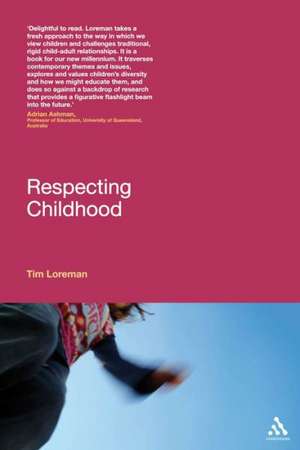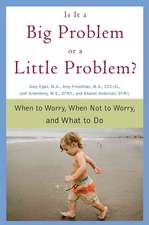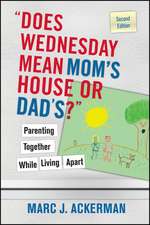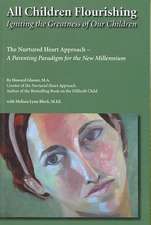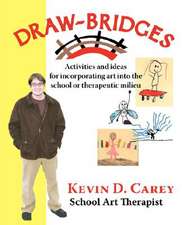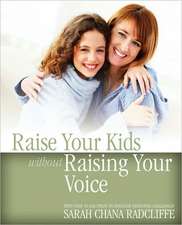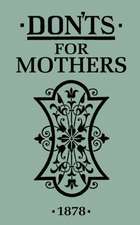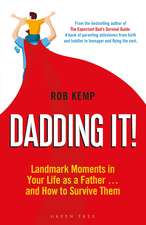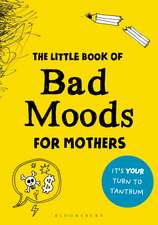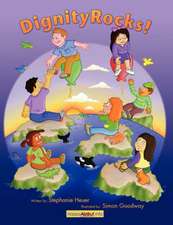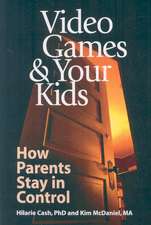Respecting Childhood
Autor Dr Tim Loremanen Limba Engleză Paperback – 15 feb 2009
Respecting Childhood critically examines modern day views and practices related to children and childhood.
It begins with a discussion of how Western society conceptualizes and often idealizes children as being fragile, innocent and 'incompetent' (or 'immature'). Childhood is often reduced by adults to being seen as preparation for the future, instead of being viewed as a stage of life worthy of respect in its own right. This is evidenced in parenting styles, practices and structures in schools, and media representations. As a result of these views of childhood, many extreme ways of living and working with children have been proposed, from over-permissiveness on the one hand, to a call for a 'back to basics' strict style of discipline and education on the other.
Childhood is now seen as being so complex that parents and teachers frequently feel the need to seek out and follow often conflicting 'expert advice' on how to raise and teach children, rather than following their natural instincts and common sense.
It begins with a discussion of how Western society conceptualizes and often idealizes children as being fragile, innocent and 'incompetent' (or 'immature'). Childhood is often reduced by adults to being seen as preparation for the future, instead of being viewed as a stage of life worthy of respect in its own right. This is evidenced in parenting styles, practices and structures in schools, and media representations. As a result of these views of childhood, many extreme ways of living and working with children have been proposed, from over-permissiveness on the one hand, to a call for a 'back to basics' strict style of discipline and education on the other.
Childhood is now seen as being so complex that parents and teachers frequently feel the need to seek out and follow often conflicting 'expert advice' on how to raise and teach children, rather than following their natural instincts and common sense.
Respecting Children advocates a more balanced approach, calling for views of children that allow them to be children, and to live their childhood in the present, rather than constantly having to follow the dubious proposition of 'maximizing' their learning and development in order to become more competitive, successful adults in the future.
Each chapter explores a different aspect of children's lives, such as their relationships with others, their capabilities, their behaviour, and looks to how these compare in the different contexts of society, home and school life. 'Windows on research', case studies and discussion questions engage the reader, making this book accessible for undergraduate students of courses such as Childhood Studies, Early Childhood Education and Education Studies, and to those of MA Education and MA Childhood and Society programmes.
| Toate formatele și edițiile | Preț | Express |
|---|---|---|
| Paperback (1) | 260.93 lei 43-57 zile | |
| Bloomsbury Publishing – 15 feb 2009 | 260.93 lei 43-57 zile | |
| Hardback (1) | 1003.20 lei 43-57 zile | |
| Bloomsbury Publishing – 15 feb 2009 | 1003.20 lei 43-57 zile |
Preț: 260.93 lei
Preț vechi: 319.86 lei
-18% Nou
Puncte Express: 391
Preț estimativ în valută:
49.94€ • 51.87$ • 41.48£
49.94€ • 51.87$ • 41.48£
Carte tipărită la comandă
Livrare economică 03-17 februarie 25
Preluare comenzi: 021 569.72.76
Specificații
ISBN-13: 9780826432445
ISBN-10: 0826432441
Pagini: 152
Dimensiuni: 156 x 234 x 15 mm
Greutate: 0.23 kg
Editura: Bloomsbury Publishing
Colecția Continuum
Locul publicării:London, United Kingdom
ISBN-10: 0826432441
Pagini: 152
Dimensiuni: 156 x 234 x 15 mm
Greutate: 0.23 kg
Editura: Bloomsbury Publishing
Colecția Continuum
Locul publicării:London, United Kingdom
Caracteristici
Offering an international perspective by critically examining the key aspects of children's lives such as their relationships with others, their capabilities, their behaviour, all within the contexts of society, home and school life.
Cuprins
Acknowledgements
Preface
1 Introduction
Preface
1 Introduction
The rationale for this text
What respect for childhood means
The image of the child in society
A negative view of children: Traditional foundations
Positive views of children: An example from Reggio Emilia, Italy
Case study
Discussion questions
Further resources
2 Respecting Children's Present and Future
What respect for childhood means
The image of the child in society
A negative view of children: Traditional foundations
Positive views of children: An example from Reggio Emilia, Italy
Case study
Discussion questions
Further resources
2 Respecting Children's Present and Future
The big picture
Childhood as preparation for the future
Perspectives on the purpose of education
Media encroachments on childhood
Respecting children's present and future at home
Extra-curricular activities and 'hyper-parenting'
De-valuing unstructured play time
Respecting children's present and future at school
Squeezing the school day
Opting out of time tyranny
Homework: Valuable learning opportunity or meaningless waste of time?
Future-focussed curriculum
Case study
Discussion questions
Further resources
3 Respecting Children's Relationships and Family Life
Childhood as preparation for the future
Perspectives on the purpose of education
Media encroachments on childhood
Respecting children's present and future at home
Extra-curricular activities and 'hyper-parenting'
De-valuing unstructured play time
Respecting children's present and future at school
Squeezing the school day
Opting out of time tyranny
Homework: Valuable learning opportunity or meaningless waste of time?
Future-focussed curriculum
Case study
Discussion questions
Further resources
3 Respecting Children's Relationships and Family Life
The big picture
The independent child
The interdependent child
The de-centred child: A postmodern view
Respecting children's relationships and family life at home
The negative impact of popular psychology
The real experts: Parents
New technologies, new pressures
Respecting children's relationships and family life at school
Egocentrism and social relationships
Classroom structures and practices which respond to the need for relationships
Productive home-school relationships
Case study
Discussion questions
Further resources
4 Respecting Children's Capacities and Abilities
The independent child
The interdependent child
The de-centred child: A postmodern view
Respecting children's relationships and family life at home
The negative impact of popular psychology
The real experts: Parents
New technologies, new pressures
Respecting children's relationships and family life at school
Egocentrism and social relationships
Classroom structures and practices which respond to the need for relationships
Productive home-school relationships
Case study
Discussion questions
Further resources
4 Respecting Children's Capacities and Abilities
The big picture
Traditional views of intelligence
Alternative views of intelligence
School entry age: Strategizing to get an edge
Accelerating cognitive development
Research on school entry age
Respecting children's capacities and abilities at home
Respectful interior physical environments
Respectful exterior physical environments
Toys to support the capable child
Respecting children's capacities and abilities at school
Reclaiming the value of the traditional scholarly disciplines
Prescriptive curriculum missing the mark
An alternative curriculum approach, and a compromise solution (for now!)
The drift towards home schooling: Is it such a bad thing?
The Whole Schooling Consortium
Case study
Discussion questions
Further resources
5 Respecting Children's Behaviour and Morals
Traditional views of intelligence
Alternative views of intelligence
School entry age: Strategizing to get an edge
Accelerating cognitive development
Research on school entry age
Respecting children's capacities and abilities at home
Respectful interior physical environments
Respectful exterior physical environments
Toys to support the capable child
Respecting children's capacities and abilities at school
Reclaiming the value of the traditional scholarly disciplines
Prescriptive curriculum missing the mark
An alternative curriculum approach, and a compromise solution (for now!)
The drift towards home schooling: Is it such a bad thing?
The Whole Schooling Consortium
Case study
Discussion questions
Further resources
5 Respecting Children's Behaviour and Morals
The big picture
Moral development: Kohlberg's simplistic and negative view
Questioning the rationalist model of moral development
Respecting children's behaviour and morals at home
Corporal punishment: Shaky logic supporting a risky practice
The impact of over-permissiveness
The authoritative parent
Respecting children's behaviour and morals at school
Welcome to your new class...now control those kids!
Behaviourist approaches to classroom management: Putting out fires
Developing self-discipline
Case study
Discussion questions
Further resources
6 Respecting Children's Differences
Moral development: Kohlberg's simplistic and negative view
Questioning the rationalist model of moral development
Respecting children's behaviour and morals at home
Corporal punishment: Shaky logic supporting a risky practice
The impact of over-permissiveness
The authoritative parent
Respecting children's behaviour and morals at school
Welcome to your new class...now control those kids!
Behaviourist approaches to classroom management: Putting out fires
Developing self-discipline
Case study
Discussion questions
Further resources
6 Respecting Children's Differences
The big picture
The disguise of tolerance
The power of media stereotypes
Discrimination
Respecting children's differences at home
Disability and home institutionalisation
Reinforcing gender stereotypes at home
Respecting children's differences at school
Inclusive education for children with diverse learning needs
Curriculum and support materials which include all
Case study
Discussion questions
Further resources
7 Conclusion
The disguise of tolerance
The power of media stereotypes
Discrimination
Respecting children's differences at home
Disability and home institutionalisation
Reinforcing gender stereotypes at home
Respecting children's differences at school
Inclusive education for children with diverse learning needs
Curriculum and support materials which include all
Case study
Discussion questions
Further resources
7 Conclusion
Limits on respect for children
Restrictive social conditions
Resisting the pressures on childhood
A model of respect for childhood
Three principles for living and working with children
References
Restrictive social conditions
Resisting the pressures on childhood
A model of respect for childhood
Three principles for living and working with children
References
Recenzii
'Delightful to read. Loreman takes a fresh approach to the way in which we view children and challenges traditional, rigid child-adult relationships. It is a book for our new millennium. It traverses contemporary themes and issues, explores and values children's diversity and how we might educate them, and does so against a backdrop of research that provides a figurative flashlight beam into the future.' Adrian Ashman, Professor of Education, University of Queensland, Australia
'There are few books on children and childhood that are as wide-ranging, well documented and timely as this one. The author, whose insight into and devotion to children is apparent on every page, presents issues like family relationships, technology, IQ tests, schooling, inclusion programs and societal perceptions of children in a beautifully written, jargon free manner that is reminiscent of the very best writing in the field of children and childhood. This book encourages the reader to get beyond both Freud and Piaget's definition of children as incomplete adults and to see childhood as a valuable stage of life in and of itself. A book like this is long overdue in this particular field because it contains many useful ideas for improving both our understanding and treatment of children.' David G. Wangler, Professor Emeritus, Department of Educational Policy Studies, University of Alberta, Canada
'There are few books on children and childhood that are as wide-ranging, well documented and timely as this one. The author, whose insight into and devotion to children is apparent on every page, presents issues like family relationships, technology, IQ tests, schooling, inclusion programs and societal perceptions of children in a beautifully written, jargon free manner that is reminiscent of the very best writing in the field of children and childhood. This book encourages the reader to get beyond both Freud and Piaget's definition of children as incomplete adults and to see childhood as a valuable stage of life in and of itself. A book like this is long overdue in this particular field because it contains many useful ideas for improving both our understanding and treatment of children.' David G. Wangler, Professor Emeritus, Department of Educational Policy Studies, University of Alberta, Canada
